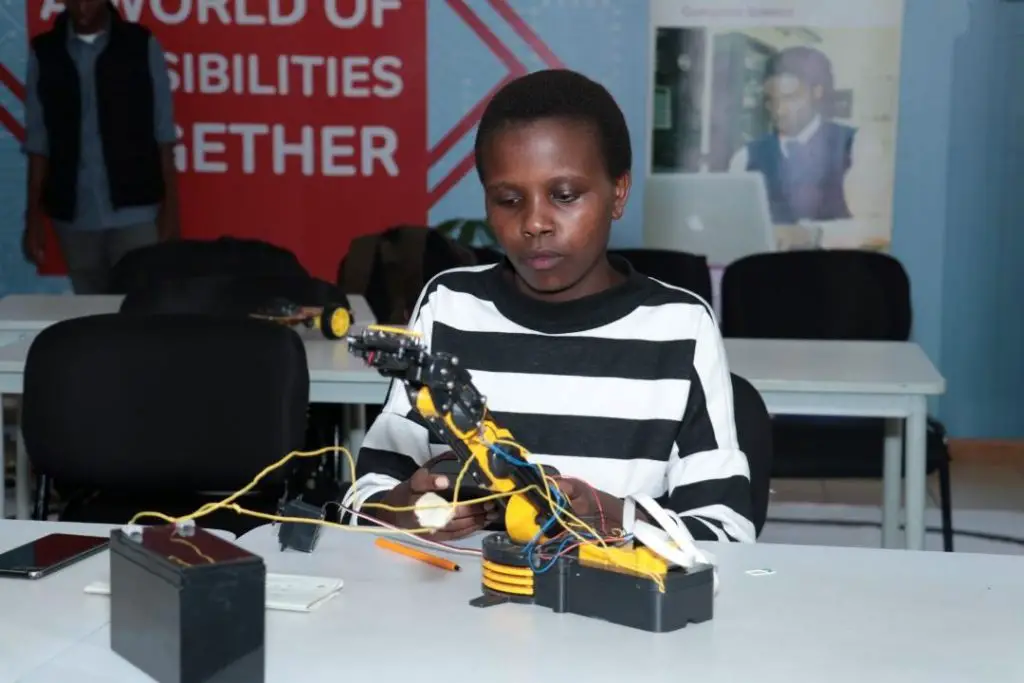Before the technology explosion globally, women have not had a better opportunity to level the playing field and narrow the employment gender gap as they do now.
Africa—just like on any other continent where women have had to fight their way up—offers great career prospects for women but they have not and will not have these opportunities come easy.
However, there is a silver lining and a light at the end of the tunnel as women are not just sitting and waiting for these opportunities to be handed to them. They are taking the bull by the horns and taking the lead in the sector which promises an economic revolution for the hitherto Dark Continent.
The revival of industries with tech boost in Africa
To make things easier and better for women interested in tech, female techpreneurs are offering training and mentorship to those interested in not just coding but in the complete tech ecosystem.
With these kinds of women, the tech scene in Africa is bound to be balanced with men and women in tech at par or with more females in the coming years. In Kenya, for instance, non-profit AkiraChix continues providing digital skills training to young women readying them for the unlimited opportunities in the tech world.
Sub-Saharan Africa boasts the world’s highest rate of women entrepreneurs, at 27 per cent according to the MasterCard Index of Women Entrepreneurs 2019.
Uganda accounts for the lion’s share of women in business while Ghana and Botswana take the second and third position as having the highest percentage of women entrepreneurs globally.
While most of these businesses do not have employees, likewise their growth expectations are low since they are mostly one-woman enterprises oriented to consumers.
Nonetheless, this does not define the tech ecosystem which is seeing more women join the fray and make an impact in a world that has been previously dominated by men. Looking to the future, the tech scene in Africa could be one of the most liberalised, unlike many other sectors which remain male-dominated.
Africa new frontier for developing data centres
Taking the lead in ensuring that women are not left behind in tapping the opportunities in tech is codeHive. For the past nine years, codeHive has been running year-long training programmes for young women from socio-economically disadvantaged backgrounds. To ensure that the future is ‘woman’, codeHive runs in Kenyan high schools and primary schools as it seeks to shift women’s entrepreneurial endeavours to technology.
Despite the future looking bright for women in the tech arena, challenges abound.
For instance, start-ups led by women have been receiving 50 per cent less venture capital funding despite the fact that female-led global tech firms typically achieve 35 per cent more return on investment than those run by men. But this cannot be a deterrent as already there are several companies led by women and which are achieving great results training and arming girls for the future tech world.
Continent-wide, there are tech training companies which are turning heads like GirlHype in South Africa.
Baratang Miya is the brainchild behind GirlHype, a not-for-profit company providing programming and app development training for young women and girls.
The self-taught coder’s mission is to increase the number of African women in STEM and bring training to those who have had little access to technology previously.
GirlHype (Women Who Code) is creating business opportunities for women in South Africa and operates a Clubs Programme for 6th-12th grade girls where they can attend free after-school classes to explore coding. In these clubs, coding is done in a fun and friendly environment. In addition, girls in 10th-12th grade benefit from a summer immersion programme which runs for seven weeks to provide the older students a tech job exposure and a more in-depth understanding of coding.
As the world heads into a future where technology is weaved into everyday life, the reality in Africa is that the continent’s greatest employer is the informal sector representing 80 per cent of the workforce.
To tap into this and help girls get ready for it, in Ghana, children can code. Ernestina Appiah founded Ghana Code Club in 2015 to instil diversity, innovation, creativity and passion in children in readiness for the work environment. By so doing, Appiah hopes that tech entrepreneurship will flourish across the country. In creating a workforce for the future, the Ghana Code Club seeks to equip young Ghanaians to harness the power of technology for them to achieve economic and personal success. Appiah’s mission is to see that every child and youth can access the skills they need to thrive in the modern world.
The world is shifting to technology and with the Fourth Industrial Revolution representing a fundamental change in the way we live, work and relate to one another, this is the time for Africa to blossom.
Advances in technology are merging the physical, digital and biological worlds presenting a huge promise for developing nations in Africa.
This revolution is an opportunity which women need to be a part of to create Africa that Africans have always wanted but one that has for long been elusive. It is indeed time for Africa.
